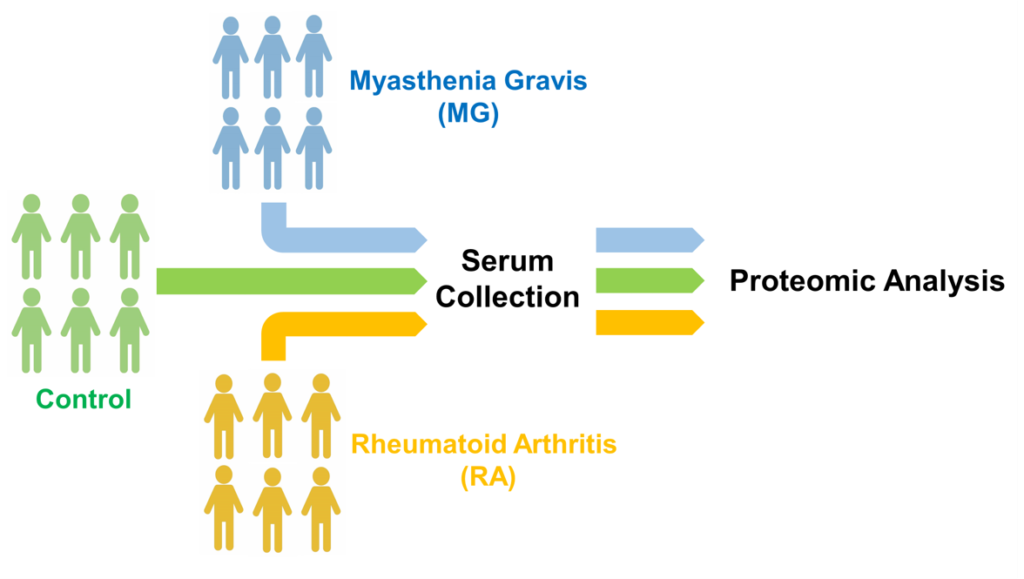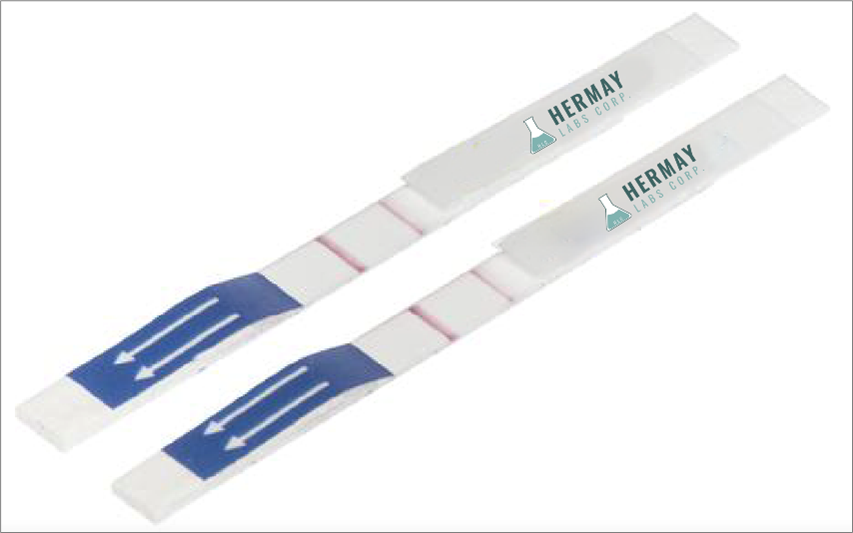
Our Technology
Dr. Richard Fahlman, Dr. Zaeem Siddiqi and their team from the University of Alberta have identified a unique pattern of protein-products of the body’s metabolic processes specific to Myasthenia Gravis (MG) using advanced analysis of serum. The identification of this biomarker can be used to detect the presence of MG with 99% accuracy. Traditional testing methods of MG often entail molecular diagnosis by the presence of serum antibodies and is only confirmed in about 85% and 50% of patients with generalized and ocular MG, respectively. These antibodies only provide the diagnosis but do not shed light on how the patient will react to a specific drug or whether that drug will be the best-suited option. Our novel technology implementing advanced proteomic profiling approach significantly improves the accuracy of MG identification. Studies are in process to assess the utility of the new biomarker in predicting the course of the disease and developing treatment plans specific to the individual patient.

The team of researchers compared the serum of patients with MG to those of a healthy control group and additionally to the serum from a group with another autoimmune disease, rheumatoid arthritis. A unique profile of proteins was found from over 1000s of serum sample compounds. “This is really important because now we have a way to easily separate a patient with myasthenia gravis from someone with rheumatoid arthritis or another autoimmune disease,” said Dr. Siddiqi.
Decipher plans to patent and commercialize this innovative MG identification technology in the form of convenient test kits. The conceptual prototype, “Dip Sticks”, produces accurate results in just under 2 hours.


Our Team

Dr. Richard Fahlman, CEO at Decipher, is an expert in applied and analytical biochemistry with 25 years of research experience. Dr. Fahlman earned his doctorate at Simon Fraser University and has completed postdoctoral research at the University of Colorado, Northwestern University, and the University of British Columbia. He is currently a Professor in the Department of Biochemistry and an Adjunct Professor in the Department of Oncology at the University of Alberta. In addition, he is a Director of the Alberta Proteomics and Mass Spectrometry core facility at the University of Alberta.
He has served on the Scientific Advisory boards of several companies and is a current grant panel member for the Cancer Biology and Therapeutics panel for the Canadian Institutes for Health Research (CIHR) and the Canadian Cancer Society. His current research expertise is on autoimmunity and oncology, with a specific molecular focus on proteostasis mechanisms in these diseases. Dr. Fahlman is an inventor of two patents and an author of 61 publications.

Dr. Zaeem Siddiqi, CMO at Decipher, is a member of the University of Alberta’s Women’s and Children’s Health Research Institute, Neuroscience and Mental Health Institute and is currently appointed as Professor in the Department of Medicine in the Faculty of Medicine & Dentistry. Before joining the neurology program at the University of Alberta, he completed his residency and advanced neuromuscular and electromyography fellowship at Duke University School of Medicine.
“When I joined University of Alberta after completing my residency/fellowship at Duke, there was a single neuromuscular specialist at my institution. We now have five with few more in the “pipeline.” During this period, I developed the MG program from grassroots, and started a multidisciplinary muscular dystrophy (MD) clinic. Our MG program is one of the largest in Canada with a number of ongoing clinical trials and translational research projects. We have a unique model of multidisciplinary care for MD with each clinic staffed by a neurologist, cardiologist, physiatrist and respirologist along with a neuromuscular nurse, dietitian, social worker, and other support staff. Though it took some doing to assemble this team, the patient love this “one-stop shopping” model. Through a national award, I established the autonomic laboratory/clinic, the only one in Western Canada. For this, I spent some time with Dr. Low at the Mayo Clinic to emulate his battery of autonomic tests in my lab.” said Dr. Siddiqi in a “Spotlight” interview with the Duke Department of Neurology.
